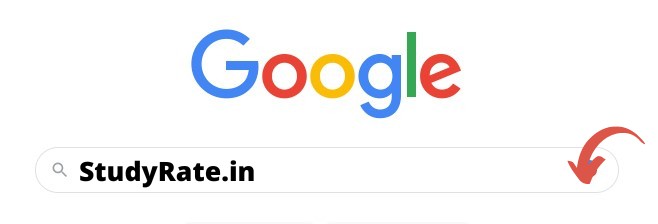Hello students, in this article we have provided the Summary of Class 12th Flamingo Chapter 7 The Interview with PDF format for free. You can download the PDF also of the Summary of The Interview for free and use it to score 99.9% in your Class 12th Boards Exams.
Summary of The Interview
The short story “Interview” by Christopher Silvester is about the experience of a job candidate named Mr. Chandrakumar who is interviewing for a position in a large company. The story is set in modern-day India and explores the themes of social class, cultural differences, and the impact of globalization.
Mr. Chandrakumar, who is from a lower-middle-class background, is interviewed by Mr. Dutt, who is from a wealthy and privileged background. Throughout the interview, Mr. Chandrakumar is acutely aware of the differences between himself and Mr. Dutt, both in terms of their backgrounds and their communication styles.
As the interview progresses, Mr. Chandrakumar becomes increasingly nervous and feels that he is not doing well. However, he is surprised when Mr. Dutt offers him the job. The story ends with Mr. Chandrakumar reflecting on the experience and the lessons he has learned about the importance of being true to oneself and not letting social class or cultural differences hold one back.
Overall, “Interview” is a thought-provoking and insightful story that explores important themes related to social class, cultural differences, and globalization. It offers a commentary on the challenges faced by individuals from lower socio-economic backgrounds in navigating the professional world and the impact of globalization on Indian society.
Conclusion of Interview
In conclusion, “Interview” by Christopher Silvester is a powerful and thought-provoking short story that explores important themes related to social class, cultural differences, and the impact of globalization. Through the character of Mr. Chandrakumar, the story highlights the challenges faced by individuals from lower socio-economic backgrounds in navigating the professional world and the impact of cultural differences on communication styles and job interviews.
About the Author
Christopher Silvester is a British author and journalist. He was born in 1953 and studied at the University of Oxford. He has worked as a journalist for various publications, including The Guardian, The Independent, and The Daily Telegraph.
Silvester is the author of several books, including biographies of musician Leonard Cohen and comedian Peter Cook. He has also written fiction, including the short story “Interview,” which was published in the anthology “India!,” edited by Khushwant Singh.
- The Last Lesson Summary
- Lost Spring Summary
- Deep Water Summary
- The Rattrap Summary
- Indigo Summary
- Poets and Pancakes Summary
- The Interview Summary
- Going Places Summary
Summary of The Interview in Hindi
“इंटरव्यू” एक छोटी कहानी है, जो कक्षा 12 के अंग्रेजी विषय में पढ़ी जाती है। क्या कहानी में मिस्टर चंद्रकुमार, एक जॉब कैंडिडेट, एक बड़े कंपनी में नौकरी के लिए इंटरव्यू देने जाते हैं। वहां उन्हें अपने निचले तबके के बैकग्राउंड के कारण कई मुश्किलें आती हैं और वो इंटरव्यू में कुछ सवालों के जवाब नहीं दे पाते और कुछ सवाल उनके कल्चर और लैंग्वेज से जुड़े होते हैं।
कहानी में मिस्टर चंद्रकुमार के इंटरव्यू के अनुभव के माध्यम से आज की भारत की स्थिति पर विशेष जोर दिया गया है, जिस्मे लोअर-क्लास या मिडिल-क्लास के लोगों के लिए बड़े कंपनी में नौकरी मिलना काफी मुश्किल हो जाता है। यह कहानी हमारे समाज और अर्थशास्त्र के बड़े मुद्दों को समझा करता है।
कहानी के अंत में, मिस्टर चंद्रकुमार को नौकरी से रिजेक्ट कर दिया जाता है, लेकिन उसके रिजेक्शन के पीछे की वजह उनके लोअर-क्लास बैकग्राउंड की नहीं थी। इसका जिक्र करते हुए, कहानी के अंत में एक बड़ा संदेश है कि अगर कोई अपने लक्ष्य के लिए मेहनत करें और सही दिशा में जाने के लिए काम करें, तो उनके लिए सफलता का कोई होता नहीं है।
Important Questions on The Interview
1. What is the theme of the story “The Interview”?
Answer: The theme of the story “The Interview” is the struggle faced by people from lower-class backgrounds in securing jobs in big companies and the importance of hard work and determination in achieving success.
2. What was the interviewee’s name in the story?
Answer: The interviewee’s name in the story was Mr. Chandrakumar.
3. What challenges did Mr. Chandrakumar face during the interview?
Answer: Mr. Chandrakumar faced challenges related to his lower-class background, such as difficulty in understanding some questions related to culture and language, and difficulty in presenting himself confidently due to lack of exposure.
4. Did Mr. Chandrakumar get the job?
Answer: No, Mr. Chandrakumar was rejected for the job.
5. What is the message conveyed by the story “The Interview”?
Answer: The message conveyed by the story “The Interview” is that hard work and determination can help overcome societal barriers and lead to success, irrespective of one’s background.
6. What does the story highlight about the current Indian society and economy?
Answer: The story highlights the challenges faced by people from lower-class backgrounds in securing jobs in big companies, which reflects the current Indian society and economy where the socio-economic divide is significant, and the access to resources and opportunities is not equal for all.
7. What could have been done differently by Mr. Chandrakumar to perform better in the interview?
Answer: Mr. Chandrakumar could have prepared better for the interview by doing research on the company and its culture, practicing common interview questions, and working on his confidence and communication skills.
8. How can employers help create a level playing field for job applicants from diverse backgrounds?
Answer: Employers can help create a level playing field by implementing diversity and inclusion policies, providing equal opportunities for all applicants regardless of their background, and offering training and support to help applicants improve their skills and confidence.
9. What can be the role of the government in addressing the socio-economic disparities in the country?
Answer: The government can play a crucial role in addressing socio-economic disparities by implementing policies and programs that provide equal access to education, healthcare, employment, and other essential services, especially for people from lower-class backgrounds.
10. What lessons can we learn from the story “The Interview”?
Answer: The story “The Interview” teaches us the importance of hard work, determination, and preparation in achieving success, irrespective of our background. It also highlights the need for creating a more inclusive and equal society where everyone has access to opportunities and resources.


